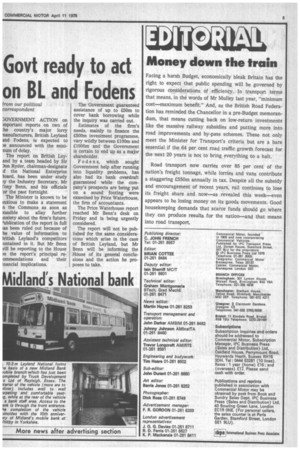Money down the train
Page 7

If you've noticed an error in this article please click here to report it so we can fix it.
Facing a harsh Budget, economically bleak Britain has the right to expect that public spending will be governed by rigorous considerations of efficiency. In transport terms that means, in the words of Mr Mulley last year, "minimum cost—maximum benefit." And, as the British Road Federation has reminded the Chancellor in a pre-Budget memorandum, that means cutting back on low-return investments like the massive railway subsidies and putting more into road improvements and by-pass schemes. These not only meet the Minister for Transport's criteria but are a bare essential if the 64 per cent road traffic growth forecast for the next 20 years is not to bring everything to a halt.
Road transport now carries over 85 per cent of the nation's freight tonnage, while lorries and vans contribute a staggering £550m annually in tax. Despite all the subsidy and encouragement of recent years, rail continues to lose its freight share and now—as revealed this week—even appears to be losing money on its goods movements. Good housekeeping demands that scarce funds should go where they can produce results for the nation—and that means into road transport.




































































































































